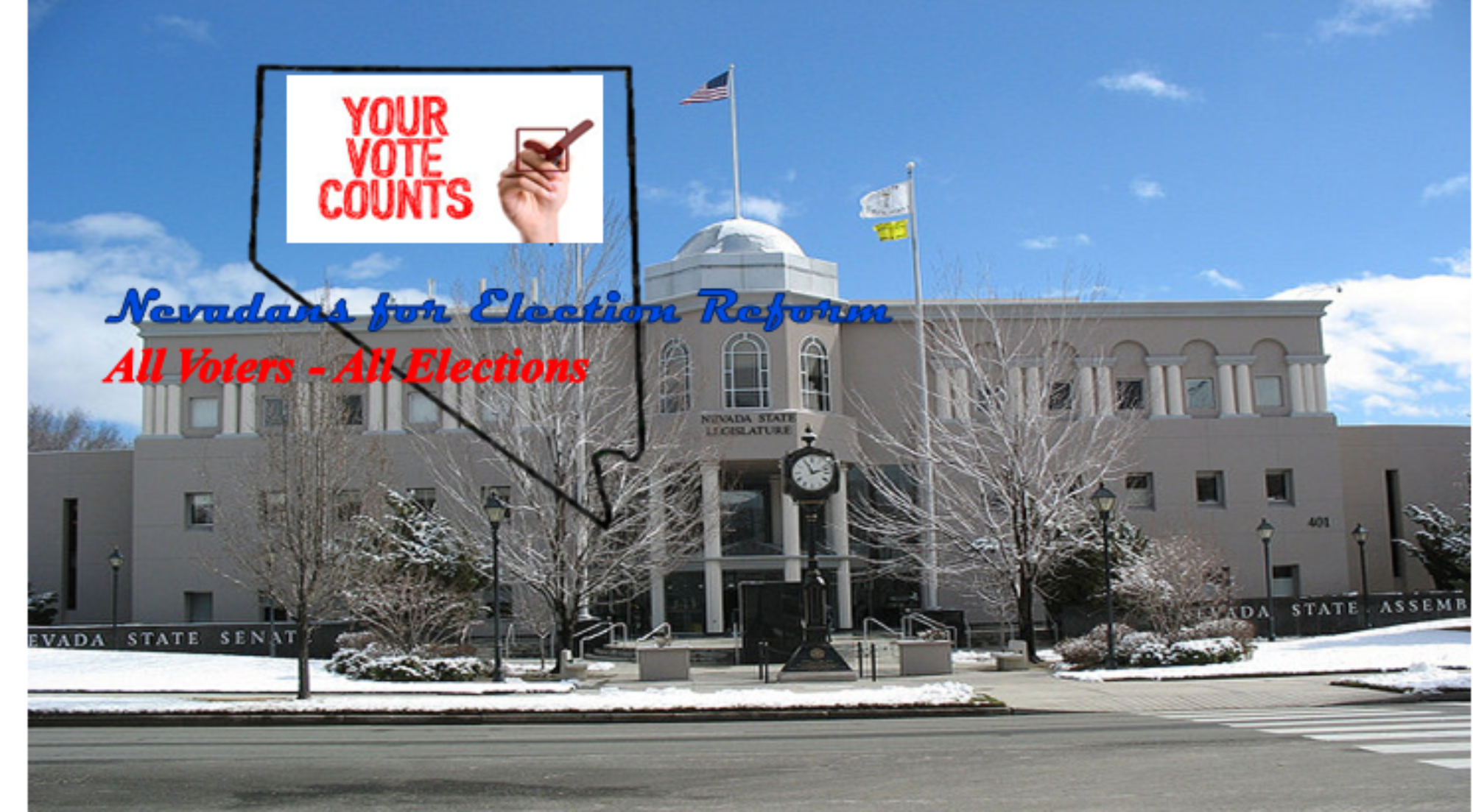By Doug Goodman -Founder & Executive Director Nevadans for Election Reform
As the Nevada legislature reached the first deadline for legislation to advance (first committee passage), Republican-sponsored election bills died their expected death.
Thirty-seven election related bills were introduced, 25 by Republican legislators, 12 by Democratic.
Of the 25 Republican-sponsored bills, 20 (80 percent) did not receive a hearing. One bill was heard but did not receive a vote. Three (3): expanding registration deadline for military overseas voters, lowering the contribution and expenditure reporting dollar threshold for political action committees, adding campaign text messages to those requiring identification of who is paying, were passed by the committee and sent to the floor. One (1) bill, increasing the oversight of poll observers was declared “exempt” and may still be heard.
The 12 Democratic-sponsored bills fared much better. All 12 (100 percent) received a hearing, eight (8) were passed and sent for floor votes, one (1) was heard but did not get a vote, and three (3) were declared “exempt” and could advance.
What Republican-sponsored bills succumbed:
- Six (6) called for all or partial repeal of AB4, the major election bill passed during special session, or voter ID. These were dead on arrival as Democratic leadership announced prior to the session these bills would not advance.
- SB130 would establish a presidential primary to be held with the state primary in June. This was similar to AB126, the Democratic bill to have the presidential primary in January.
- SB111 would have created a hybrid (both elected and appointed member) school board for Clark and Washoe county. This was similar to AB255 which was the only Democratic-sponsored bill to not make it out of committee.
- SB121 would have replaced the state’s closed partisan primaries with top-two nonpartisan open primaries.
- SB256 would have allowed for the use of electronic signatures on initiative petitions.
- SJR9 would have created a redistricting commission to draw Congressional and state legislative district boundaries.
- SB79 would have allowed the city of Laughlin to incorporate.
- AB218 would have allowed an incumbent county sheriff or constable to campaign in uniform. This bill was heard but did not receive a vote.
- AB263 would require signature verification equipment and personnel to be audited. This was added to AB321, the Democratic bill making AB4 all mail ballot election permanent.
- AJR11 would have changed the state constitution regarding “none of the above”.
- SB270 would have added state constitutional officers (attorney general, secretary of state, treasurer, controller) to the fundraising blackout period before, during, and after a legislative session.
- AB328 would have allowed funeral directors to report deaths directly to the county clerks and registrars of voters.
- SB5 would have allowed for write-in candidates.
- AB264 would require county clerks and registrars of voters to certify they performed voter roll maintenance prior to an election.
- SB301 was similar to AB321 making mail ballots permanent but had other differences.
- AB297 called for making the Clark and Washoe county registrar of voters an elected rather than appointed position.
Were some of these bills controversial? Were some driven by negative perceptions of the last election? Did some address valid issues? Yes, yes, and yes. Would our political and legislative process have benefited from open public discussion? Most definitely.
